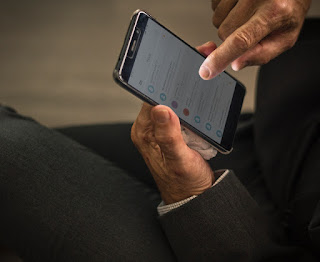
Seemingly a lot of changes are in the works with Google’s email systems. Recently, Google made a confidential mode available (beta) to its G suite customers.
The update promises to provide confidentiality via emails that can be sent in confidential mode and data exchange that is similarly private.
However, you may be wondering how confidential is Gmail in light of this update?
[Related: The Best Encrypted Email for Your Business]
What Is “Confidential Mode”?
Confidential mode employs IFM (information management controls) that gives users the ability to control certain aspects of their emails. For instance, they can set expiration dates, predetermine the ability for recipients to copy, print, or download an email, and revoke sent emails.
Users interested in an added layer security can opt to require a text-message based two-factor identification process as well. This aims to protect the contents of an email in case of an account’s potential security breach.
For stored files and archiving, there’s Google Vault. From Google Drive, Jamboard files can be archived and searched. Furthermore, data can be retained and exported.
How Secure is Gmail Confidential Mode?
First, it must be noted that confidential mode must be manually enabled. Secondly, recipients are able to copy and paste text once they have accessed it. There is no protection from screenshots.
Their promise of security further breaks down with regard to recipients external to Gmail—a confidential email now exists outside of gmail’s “secure” server.

Perhaps most importantly, Gmail offers no promise to bar its own access to your files. How do we know this?
Because confidential mode does not encrypt the confidential emails. This means that Google can retain your message data indefinitely and analyze its contents.
[Related: Email Security: Best Practices for Your Organization]
Why Trustwire Is a Better Alternative to Gmail Confidential Mode
Traditional super-strong encryption, such as PGP, requires the user to be knowledgeable about cryptography. Why should your everyday user learn cryptography simply to be able to share documents safely?
On the other hand, solutions that are seemingly secure, like Gmail’s confidential setting are too weak to provide true data security. This leaves the problem of data security either too hard to use or too weak to matter.
Enter Trustwire. Trustwire is a secure, browser-based file transfer service. Simply sign up for a free personal account, or our low-cost business plan, and begin sharing files. Trustwire has a simple user interface, yet we use the strongest open-sourced encryption available—AES 256-bit and RSA 4096-bit encryption (end-to-end) to protect your messages and documents.
Unlike Gmail, Trustwire never has access to the content of your messages or your documents. We do not analyze or track your usage or browser history. Trustwire is a simple solution to a difficult problem. Sign up today to begin sharing data with confidence.






























